Wifi
Latest

The next generation of wireless networking will be called WiFi 6
Not all WiFi is created equal, and determining which generation of WiFi technology your devices use can be pretty complicated. Did you know that 802.11n predates 802.11ac, for example? For those that don't, the Wi-Fi Alliance is about to make things easier, introducing the next version of WiFi -- 802.11ax -- simply as "WiFi 6."
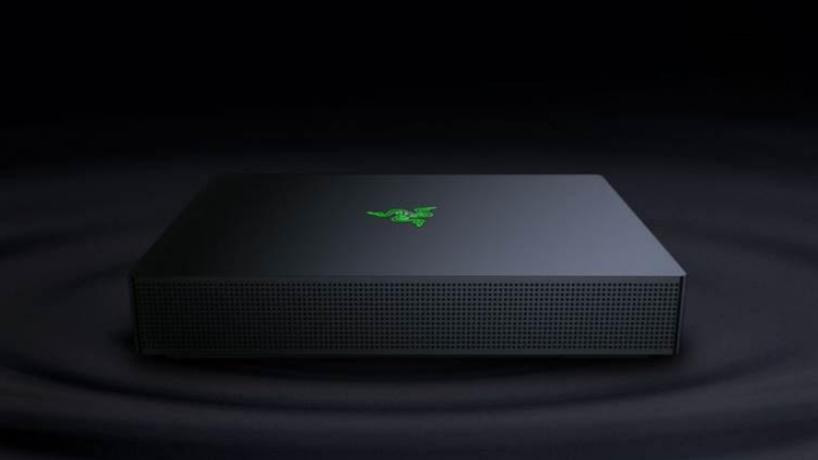
Razer claims Sila is the fastest gaming router you can buy
It's not always easy to hook up your console or PC to a wired internet connection to make sure your online gaming endeavors are as seamless as possible -- especially if your modem is on the other side of the house. WiFi can be unreliable, but Razer may have cracked the code with what it claims is the fastest gaming-focused router on the scene.

New York City's WiFi kiosks have over 5 million users
New York City's high-speed WiFi kiosks have been around for a while, but just how many people are using them? Quite a few, in fact. The LinkNYC team has revealed that there were over 5 million registered WiFi users as of September 2018, with over a billion sessions spread across the 1,700-plus units in the city. People make over 500,000 calls every month, too, although it's not clear how many of those were ice cream truck pranksters. You can safely presume that there's plenty of demand.
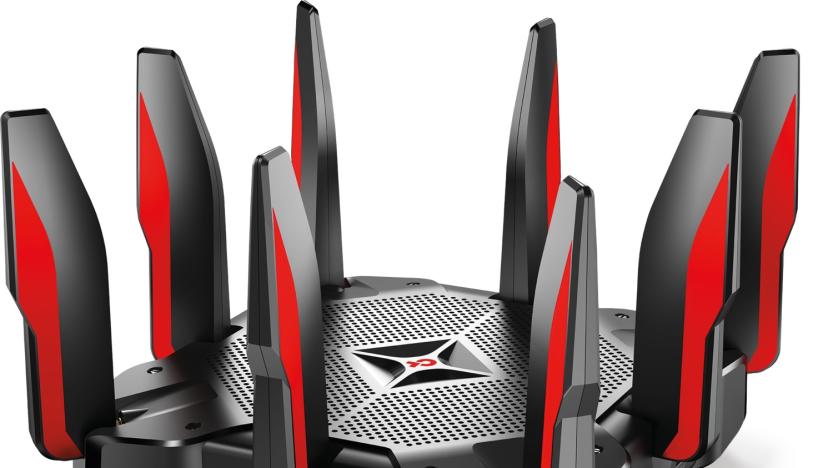
TP-Link's latest WiFi router is a gaming beast
TP-Link has unveiled its most powerful gaming router yet, and it's jacked. The Archer C5400X features 1.8 GHz 64-bit quad-core CPU, three co-processors and 1 GB RAM to reach WiFi speeds up to 5400 Mbps over one 2.4 GHz (1000 Mbps) and two 5 GHz (2167 Mbps) bands. And it comes with three WiFi bands, eight Gigabit LAN ports and one Gigabit WAN port. In other words, it's a superfast monster. Eye-watering specs aside, look at it. Look at those antennae. This isn't a router you want to shove behind the TV. Get it at Amazon, Newegg, Fry's Electronics and Micro Center for $400.

Google's next Chromecast may offer improved connectivity
Google may soon release a Chromecast with full Bluetooth support and sturdier WiFi connectivity, an FCC filing indicates. It seems likely the dongle will have the same design as the current version, with Google only making internal changes.

How Google’s location-tracking issue affects you
Watching Twitter and Facebook commit reputational suicide over the past 20 months has been as painful as it has been entertaining -- entertaining in the sense that all anyone had to do was let the companies be themselves. The cost has been terrible, on democracy, the free press, at-risk populations and soon, I'll wager, on the economy. Still, it's hard not stay glued to our screens, waiting to see what awful things Facebook and Twitter do to us next. While we've been perversely absorbed by the epic-scale human rights incompetencies of Facebook and Twitter (and trying not to get, you know, murdered, jailed or exiled as a byproduct of the platforms), we kind of forgot about some of the other born-yesterday stewards of humanity. Like Google. Which has apparently been playing fast and loose with the whole "we don't track your location" thing.

Samsung's new mesh routers use Plume's WiFi optimization tech
Mesh WiFi systems, like those from Eero, Netgear, Google and many others, have quickly become the preferred way to blanket a home in internet coverage. It provides a simple way to reach all corners of a house, something that's needed with the growing number of WiFi-enabled smart home devices. Samsung, which bought home automation platform SmartThings back in 2014, is tackling both mesh WiFi and smart home connectivity with its new, simply-named SmartThings WiFi mesh network system. As the name suggests, this system consists of multiple access points you can spread throughout your home to provide strong WiFi coverage. And like last year's Samsung Connect Home router, the new model also includes a full SmartThings hub, a helpful feature for people trying home automation for the first time.
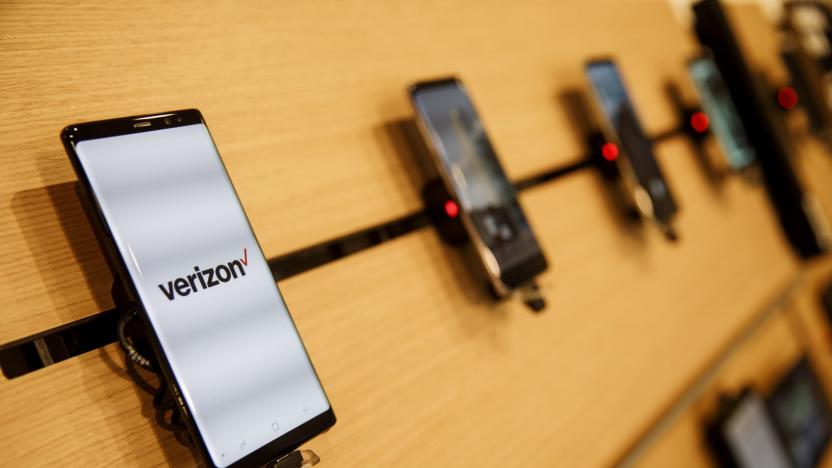
Verizon VPN app protects against shady public WiFi
Add Verizon to the list of tech giants that can't resist the temptation to offer their own virtual private network services. The carrier (and Engadget's parent company) has released a Safe Wi-Fi app for Android that uses the encryption of a VPN to protect you against dodgy WiFi hotspots. Ideally, you won't have to worry about a fake access point intercepting your data traffic at the airport or coffee shop. The app even blocks ad trackers that can lead to targeted marketing -- yes, the telecom that got in trouble for aggressive ad tracking is now helping you avoid it.

Cuba is rolling out mobile internet nationwide
The Cuban government has launched a program that will see mobile internet rolled out nationwide by the end of the year. Communist-run Cuba is one of the least connected countries in the Western Hemisphere due to a lack of resources, the US trade embargo and the government's low-tolerance approach to public dissidence, but new President Miguel Diaz-Canel says greater internet access will help to boost the economy and help Cubans "defend their revolution."
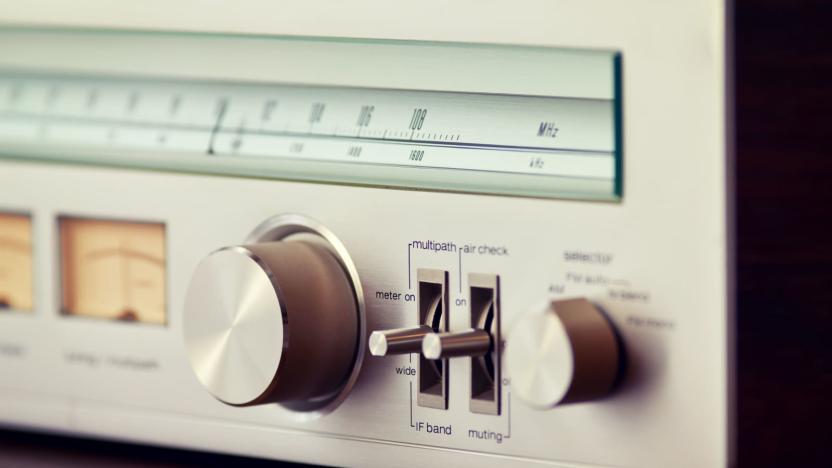
What you need to know before building a HiFi system
The process of building a stereo can be overwhelming. Should you buy new gear or trawl the local stereo shop for vintage equipment? Do you need a subwoofer for music? Are high-end speaker cables really going to make a difference in sound? It's no wonder, then, that smart speakers have become so popular: They're available in a variety of sizes and, when paired with a music streaming subscription, are a simple way to access a world of music. But the trade-off for that convenience is sound quality. While an Echo or HomePod is perfect for listening to podcasts, it can't stack up to the power and fidelity you get with a traditional stereo. If you're looking to upgrade, rather than ponying up $500 for a single Google Home Max, consider an alternative solution: building your own stereo HiFi system. While the initial setup and research are more intensive than simply telling Alexa to order more Echo Dots, after it's done you'll have a much more versatile -- not to mention better-sounding -- way to listen to music at home.

Cruel pranksters made NYC internet kiosks play ice cream truck tunes
New York City is in the midst of a heatwave, and some pranksters are taking advantage of technology to twist the knife a little more. LinkNYC has confirmed to Motherboard that someone is making its internet kiosks play ice cream truck music, taunting hapless New Yorkers looking for a cold treat on a hot day. It's incredibly cruel (or wonderfuly clever, if you're the mischievous sort), but there's no hacking involved. The perpetrators phone a kiosk, play the mouthwatering tunes from their phone, and switch to the kiosk's home screen to hide that there's a call in progress.
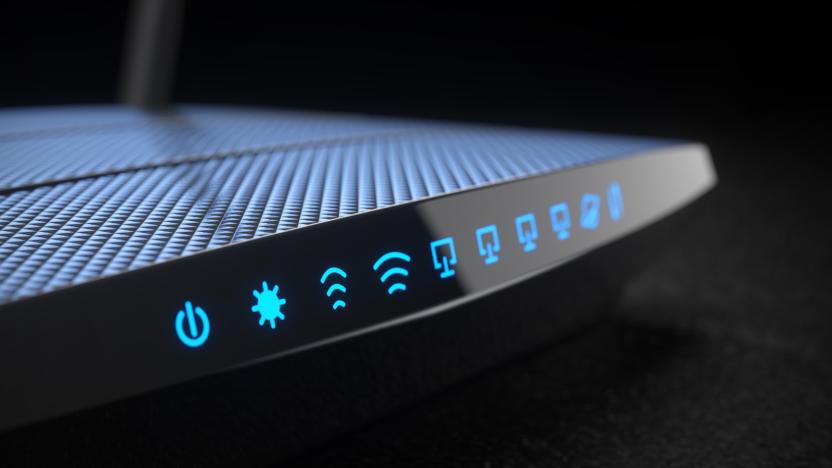
WiFi's tougher WPA3 security is ready
WiFi security is finally getting an upgrade after 14 years. The Wi-Fi Alliance has officially launched WPA3, the next-generation standard that promises to tackle many of the vulnerabilities that have persisted in wireless networking. Most notably, it brings individualized data encryption that should protect your data against eavesdropping from within the WiFi network. You'll also get tougher password-based sign-ins through Simultaneous Authentication of Equals, a key establishment protocol that reduces the chances of someone guessing your password -- even if it's lousy.
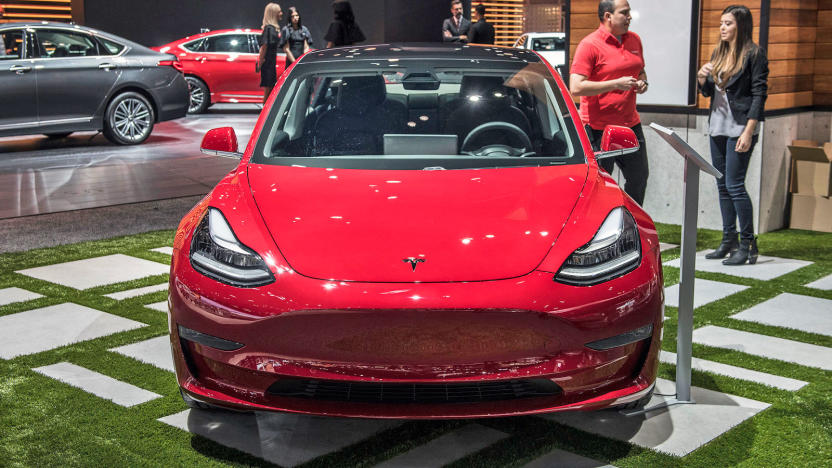
Tesla's Model 3 catches up on Autopilot and WiFi features
Tesla is still rushing to give the Model 3 some of the features you might take for granted in its EV stablemates. As part of a broader update across the lineup (including increased Autopilot nagging), Model 3 units now support a few key features, most notably Summon -- that is, the ability to move the car into and out of a parking space using either Tesla's phone app or the key. It's been something of a given for Model S and X drivers, but it'll definitely be appreciated if you'd rather not contort yourself to enter the 3 in a small garage.

How to optimize your online gaming setup
Whether you play Fortnite, PlayerUnknown's Battlegrounds or Overwatch, you're going to want as little latency as possible between your hands and the game's servers. While you can't really account for how reliable your ISP is, by making a few smart choices you can ensure that your side of the equation is as speedy as possible. Everything from your controller to your keyboard and mouse to your display and router can affect how long it takes for a game to recognize when you put a few rounds at an enemy. It might not seem like a big deal at first, but every millisecond of delay adds up and could mean the difference between that ever-elusive chicken dinner in PUBG and going home hungry. Let's take a look at a few things you can do to optimize your online gaming experience at home.
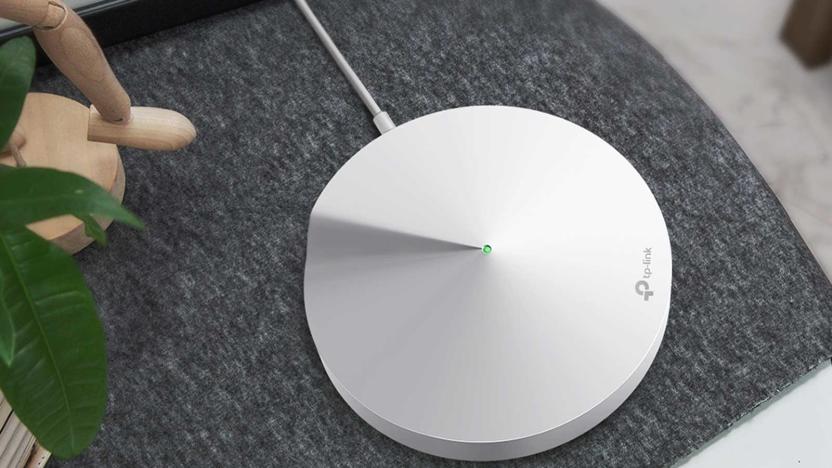
TP-Link squeezed a smart home hub into its new mesh WiFi router
Mesh WiFi routers are no longer all that special, so how do you stand out? If you're TP-Link, you roll in a smart home hub. It just introduced a Deco M9 Plus router that builds on last year's model with a hub for ZigBee- and Bluetooth-based devices like light bulbs and thermostats. If you're not fond of connecting dedicated hubs and bridges but still want good whole-home networking coverage, this might scratch your itch. TP-Link is promising compatibility with Alexa and IFTTT commands when steering your household gadgets.
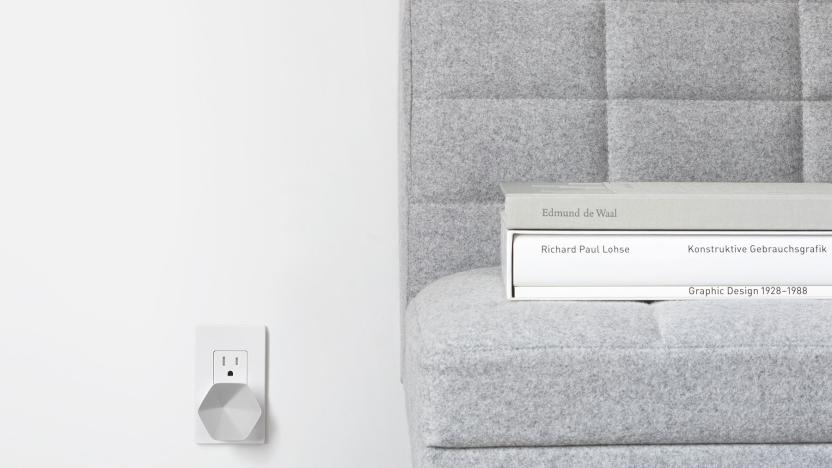
Plume launches SuperPod, its second-generation mesh WiFi puck
Plume is a WiFi company that offers a collection of wall socket-mounted nodes designed to sit in every room of your home. Don't worry if you haven't heard of it, as you're more likely to recognize Plume's rebranded hardware as Comcast's XFI gear. And a couple of years after launching its first-generation technology, Plume is back with an updated wall plug, and a whole new way to buy it.

This mesh WiFi router can track motion to protect your family
Back at CEATEC in October, I came across Origin Wireless and its clever algorithm that can turn any WiFi mesh network into a simple home security plus well-being monitoring system, and that's without using cameras or wearables -- just plug and play. At the time, I saw a working demo that left me impressed, but here at Computex, the company has moved its setup to a real-life environment (a lovely hotel room high up in Taipei), and I was finally able to try its fall detection. Better yet, it turns out that Origin Wireless has already been working with Qualcomm to integrate its technology into the ASUS Lyra router, meaning we're one step closer to seeing these features outside the lab.

Scientists invented a real-life flux capacitor, but not for time travel
If you watched Back to the Future over the holiday weekend and wished the flux capacitor was a real thing so you could travel through time, we have sorta good news. Scientists from Australia and Switzerland have proposed a real-life flux capacitor -- but you won't be able to travel back to a high school dance in the '50s with it.

Next Xbox One update finally saves multiple WiFi passwords
Microsoft continues to chip away at software concerns with the Xbox One (work in progress indeed -- can you even recognize the launch UI shown above?), and its latest Alpha test addresses two pain points that have existed practically from the start. One option upgrades the system's Pins options with Groups. It's similar to the way gamers can organize items on the PS4 ribbon, popping games and apps into sets for easier access, instead of just having a single group of Pins on the home screen or in the mini guide.

Nintendo Switch game streaming starts in Japan this week
The Nintendo Switch might not be the most capable piece of gaming hardware on the market today, but it never ceases to surprise us. Case in point: This morning Capcom announced that last year's terrifying Resident Evil 7 biohazard will be available on Nintendo's latest console later this week. The wrinkle here is that unlike Doom or the forthcoming Wolfenstein 2: The New Colossus, you'll stream the first-person horror-fest's port rather than downloading the game file all at once.








